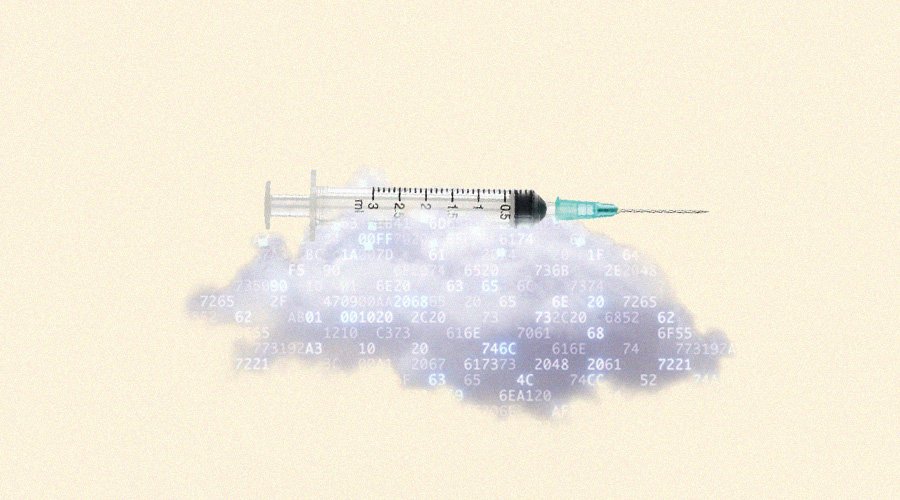Source – https://www.analyticsinsight.net/
How does cloud computing lead to improved healthcare outcomes?
The Healthcare industry is one of the fastest-growing sectors with a CAGR of 5% from 2019 to 2023. This is due to issues like the spread of chronic diseases, the aging population, and more. In the healthcare industry, a huge amount of data is created on a daily basis. Therefore, there is a need for the creation, storage, usage, and sharing of healthcare data. This caters to the need for cloud computing for quick, cost-effective and safe, and secure solutions.
Cloud computing to be precise, is the delivery of computing services (such as servers, networking, databases, analytics, intelligence, and storage) over the cloud (internet) to provide flexible resources, economies of scale, and faster innovation. Cloud computing helps in reducing operating costs, running infrastructure more effectively, etc. Thus, cloud computing enables the healthcare industry to break free from limitations while offering better patient outcomes.
Shifting to the cloud computing service is advantageous for both healthcare providers as well as for patients. The healthcare cloud computing trend is expected to grow to 64.7 billion US dollars by 2025.
Cloud Computing in Healthcare Sectors
Cloud computing assists healthcare providers in reducing operational expenses while providing improved, personalized care. Also, it helps to drive efficient workflows thus leading to better service. Parallel to this, cloud computing helps the patients to receive quick responses from the healthcare industry and also helps them to keep track of their health better through healthcare data offered by cloud solutions.
Healthcare providers and hospitals across the globe are increasing the application of cloud computing to solve problems like care coordination, data security, and population health.
Advanced cloud computing allows medical research innovation by helping researchers access important data sets under solid control. Cloud has also proved a powerful tool in hospital settings.
Advanced compute, storage capability, and database, combined with artificial intelligence and machine learning tools help the healthcare industry in building solutions and providing services to the patients. Innovative cloud computing technology will serve to equal access to care, enable the healthcare provider to make the best decision, and also access to significant medical research.
Enhanced database capabilities and advanced computing power are making preventative population health analysis a reality.
How does Cloud Computing lead to improved healthcare outcomes?
Cost Reduction
The basic theory of cloud computing is the availability of computer services like data storage and computing power. Therefore, this frees the hospitals and healthcare providers from the purchase of hardware and servers for storage. There are no charges kindred with cloud storage of data. The healthcare industry can only pay for the resources they use and thus results in huge cost savings. Cloud computing also offers an efficient environment for scaling which is highly desirable by healthcare providers for improved healthcare service.
Easy Interoperability
Cloud computing helps in establishing data combinations (irrespective of the point of origin or storage) throughout the healthcare system. This process is called Interoperability. As a result of interoperability data of the patients become easily available for distribution. This helps in gaining visions to advance healthcare planning and delivery. Thus, cloud computing enables healthcare providers to get easy access to the patient data collected from various sources and provide prescriptions and treatment protocols on time.
Approach to high powered analytics
The Healthcare industry contains data that are both structured as well as unstructured. Cloud helps in collecting and collating important data of the patients from different sources. With the modern computing power of the cloud, the processing of large datasets becomes more viable. The application of Big Data analytics and Artificial Intelligence on patient data also paves the way for developing more advanced care plans for patients.
Patient’s access to data
Cloud computing allows patients to get control over their own health. Cloud computing makes it accessible for the patients to get hold of their data from the cloud and this leads to patient participation in making decisions of their own health.
Telemedicine Capabilities
Cloud storage of data offers remote accessibility of data. The integration of cloud computing with the healthcare industry carries the ability to improve a number of healthcare-related functions such as telemedicine, virtual medication, and post-hospitalization care plans. Telemedicine apps add the element of convenience to healthcare delivery while upgrading the patient experience. Cloud-based telehealth systems and applications allow easy sharing of healthcare data, improve accessibility and provide healthcare coverage to the patients during the preventative, treatment as well as recovery phase.
